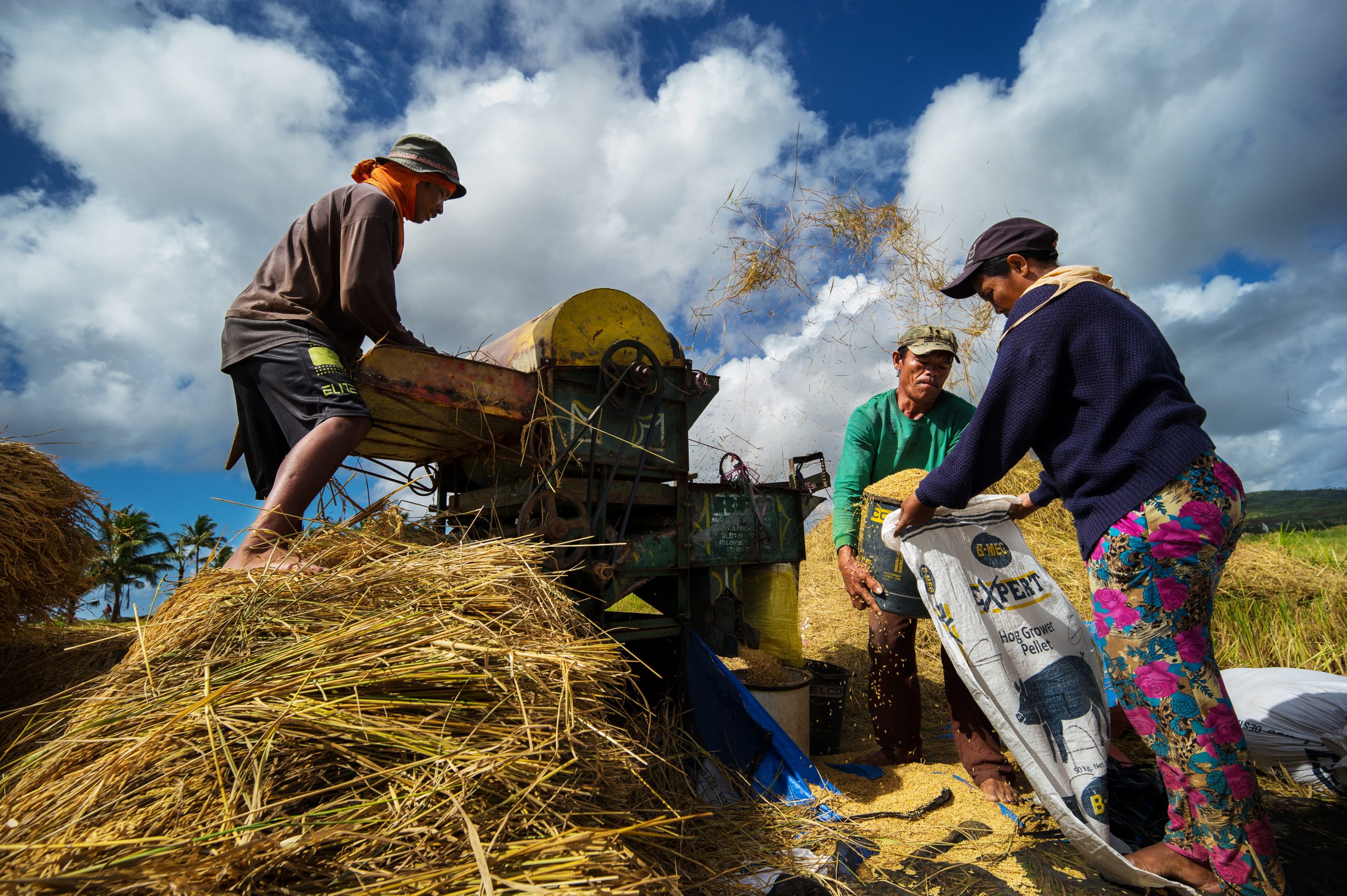
The Duterte administration’s goal to achieve a higher level of rice adequacy remains on track despite climate-induced disasters and logistical roadblocks brought about by the Covid-19 pandemic.
Agriculture Secretary William Dar said rice adequacy remains one of the top priorities of President Rodrigo Roa Duterte, stressing that this year has proven to be the turning point for the Department of Agriculture (DA) to shift its policies, strategies, and resources towards more climate-resilient and innovative agriculture.
He made the assurance in his keynote address at the recent 2019 Rice Achievers Award, held at the DA-Bureau of Soils and Water Management (BSWM) in Quezon City.
“My vision is to see productive, globally-competitive, and resilient agriculture, where Filipino farmers prosper. This has been my battlecry and we will do what it takes to make this vision a reality soon,” he said.
“In a world where we are surrounded by the gifts of technology and innovation, we must strive to withstand the impacts of climate change, rice imports and typhoons, no matter how strong and how many they are, or even the impact of global-scale disruptions such as the COVID-19 pandemic,” he added.
While the pandemic has minimal impact on the country’s rice and total agricultural production, he said it is the damage due to a series of typhoons that pushed back the DA’s earlier rice adequacy target of 93 percent.
“Due to a series of typhoons, we lost about 322,041 tons (MT) of palay, which is roughly equivalent to an eight-day rice supply. Hence, our adequacy level is about 90 to 91 percent. Let us wait for the fourth quarter palay production output. However, rest assured we have enough rice by the end of December 2020, equivalent to three months’ supply,” said Secretary Dar.
The DA previously targeted to produce 20.34 million MT (MMT) of palay (paddy rice), which is eight percent more than the total harvest of 18.8 MMT in 2019.
“The rice sector has been doing well amid the pandemic. For the first three quarters, rice production reached 11.9 MMT, exceeding initial expectations. But then, the typhoons hit, affecting our major rice-producing provinces,” Secretary Dar said.
For the last quarter of 2020, rice production is expected to reach 7.42 MMT, bringing this year’s total palay output to 19.32 MMT, 2.7% more than in 2019, said the DA national rice program (NRP) lead Assistant Secretary Andrew Villacorta.
For Q1 and Q2 2021, the DA targets to produce 9.02 MMT from an aggregate of 1.149 million hectares nationwide. The volume will come from three major rice initiatives: Rice Competitiveness Enhancement Fund (RCEF) that provides a total P10 billion (B) annually; regular national rice program, focusing on hybrids; and expanded RCEF program, covering additional areas for inbred rice production.
For the entire 2021, the DA eyes an initial target of 20.48 MMT of palay.
To achieve this, Secretary Dar said the DA will optimize the use of both quality inbred and hybrid seeds for rainfed and irrigated areas nationwide, and improve efficiency in the allocation and distribution of the P10-B RCEF for farm machinery, inbred rice seeds, credit, training and extension.
For the other two NRP components, on top of P10-B annual RCEF, the DA proposed for 2021 a total budget of P15.5B that includes the provision of hybrid seeds (P6.2B), inbred seeds (P375M), fertilizers (P4.4B), farm equipment (P1B), training (P998.2M), irrigation (P745.9M), research and development (P658.7M), and other interventions (P375M).
Further, he said the DA will strongly promote rice varieties preferred by consumers to provide farmers higher incomes.
Also, the Department will also intensify the promotion of climate resiliency programs among rice farmers to reduce crop losses during typhoons.
“This is where the AMIA (Adaptation and Mitigation Initiative on Agriculture) will come into play. We will be piloting more AMIA villages in the regions, provinces, and towns to enable local communities to manage climate risks while pursuing sustainable livelihood vision climate-resilient agriculture,” Dar said.
AMIA is the flagship program of DA for climate change adaptation and mitigation. Secretary Dar enjoined all agri-stakeholders who attended the 2019 Rice Achievers Awards to continue supporting the Department in its initiative for a gradual shift to more climate-resilient and modern farming systems. ### (DA StratComms)













